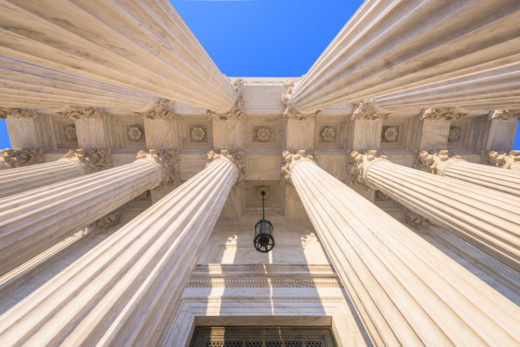DC Shuttle …
 U.S. Supreme Court to Hear Student Debt Forgiveness Case in February. The Biden administration’s plan to forgive up to $20,000 in debt for millions of federal student loan borrowers has sparked legal battles across the country. This week, the Supreme Court agreed “to decide whether the Biden administration had overstepped its authority with its plan to wipe out billions of dollars in student debt.” As the New York Times reports, “the Biden administration maintains that it has the authority to grant relief under the Heroes Act of 2003, which allows the education secretary to waive regulations related to student loans during times of war or national emergency.” Additional information can be found here.
U.S. Supreme Court to Hear Student Debt Forgiveness Case in February. The Biden administration’s plan to forgive up to $20,000 in debt for millions of federal student loan borrowers has sparked legal battles across the country. This week, the Supreme Court agreed “to decide whether the Biden administration had overstepped its authority with its plan to wipe out billions of dollars in student debt.” As the New York Times reports, “the Biden administration maintains that it has the authority to grant relief under the Heroes Act of 2003, which allows the education secretary to waive regulations related to student loans during times of war or national emergency.” Additional information can be found here.
Mass. Leaders Push Benefits of College-in-Prison Programs to Incoming Administration. A coalition of nonprofit leaders, researchers and program heads are pushing for Massachusetts to make college-in-prison programs a priority for the next administration. The coalition contends that only about 213 of the more than 6,200 people incarcerated by the Department of Correction in Massachusetts are currently enrolled in postsecondary education. Next year, for the first time since 1994, people in prison will be eligible for Pell Grants. Additional information can be found here. (In a separate initiative, NEBHE and The Educational Justice Institute at MIT have launched the New England Commission on the Future of Higher Education Behind Bars, which held its inaugural meeting in October.)
We publish the DC Shuttle each week Congress is in session featuring higher ed news from Washington collected by the New England Council, of which NEBHE is a member. This edition is drawn from the Higher Education Update in the Council’s Weekly Washington Report of Dec. 5, 2022. For more information, please visit: www.newenglandcouncil.com.
[ssba]
